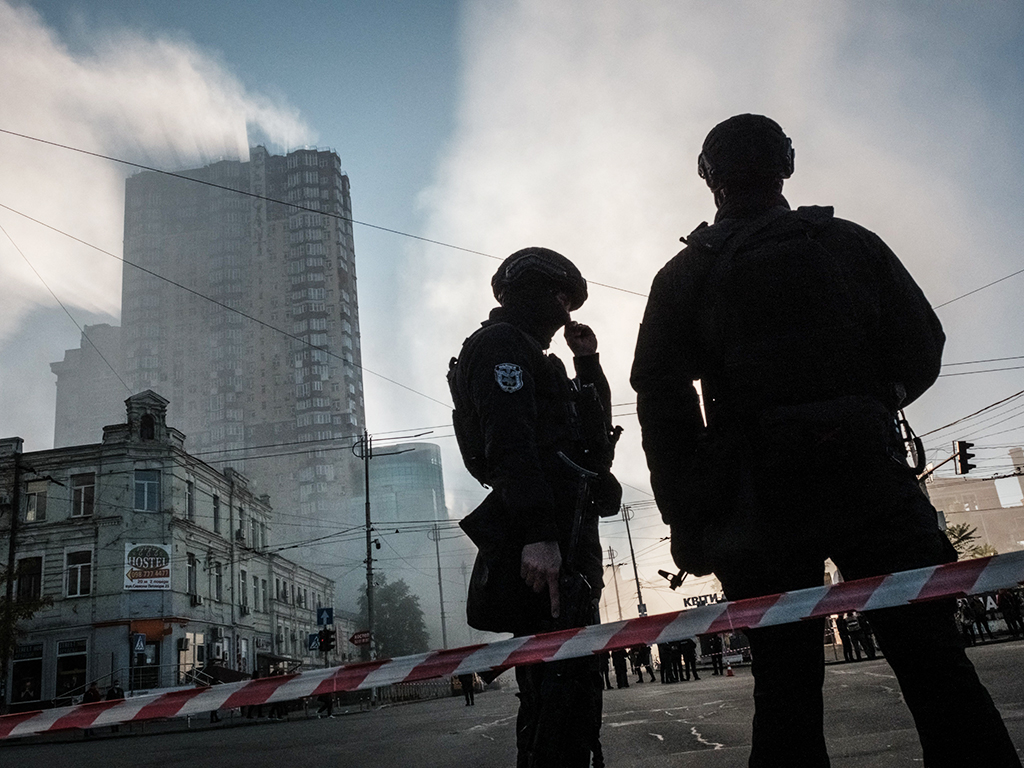
Kyiv has been hit by another wave of Russian attacks this morning. Reports from the ground indicate that many of the attacks seem to have been conducted using Iranian Shahed-136 kamikaze drones, which are capable of loitering for hours before crashing into their targets. A number were shot down but a few got through Ukraine’s air defence systems, blowing up targets in central Kyiv, according to city authorities.
Russia’s use of the Iranian drones has ramped up since the first reported attacks using the weapons in September. Iran, as one of Russia’s few remaining close allies, has supplied drones as Moscow seeks to replenish its weapons systems, depleted after months of war. Tehran is also preparing to send Moscow Fateh-110 and Zolfaghar short-range ballistic missiles, according to Western intelligence officials. Iran’s sophisticated arms industry is rapidly becoming indispensable to the Russian war effort and will likely become more so, as it is more experienced in circumventing sanctions, in contrast to its Russian counterpart.
Yet the sale of these weapons to Russia isn’t simply about being a good ally. The real-world use of these weapons against a sophisticated and battle-hardened defender will inevitably be used by the Iranian arms industry to perfect them, posing a danger to Iran’s opponents in the Middle East, including Saudi Arabia, the UAE and perhaps most pertinently Israel.
Accordingly, the use of Iranian drones has pushed some in Israel, such as the diaspora minister, Nachman Shai, to call for the country to strengthen its oftentimes limited support to Ukraine and join Western countries in providing military assistance to Kyiv. “There is no longer any doubt where Israel should stand in this bloody conflict. The time has come for Ukraine to receive military aid [from Israel] as well, just as the USA and NATO countries provide,” the politician wrote on Twitter.
Ukrainian president Volodymyr Zelensky has called on Israel to provide air defence systems, something it has yet to do. Tel Aviv’s refusal to offer Kyiv sensitive military technology is thought to be the former’s attempt to protect its relationship with Moscow, which controls the airspace in neighbouring Syria where Israel regularly flies sorties to strike at Iranian-linked targets.
Hanging over this is the larger question of what Iran – widely believed to be aiming to develop nuclear weapons – is getting from Russia in exchange for its weapons. How long can Israel stay neutral in a conflict where its interests are so directly challenged?





